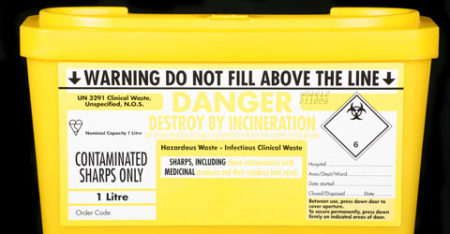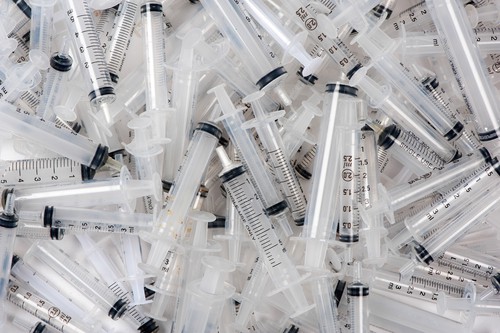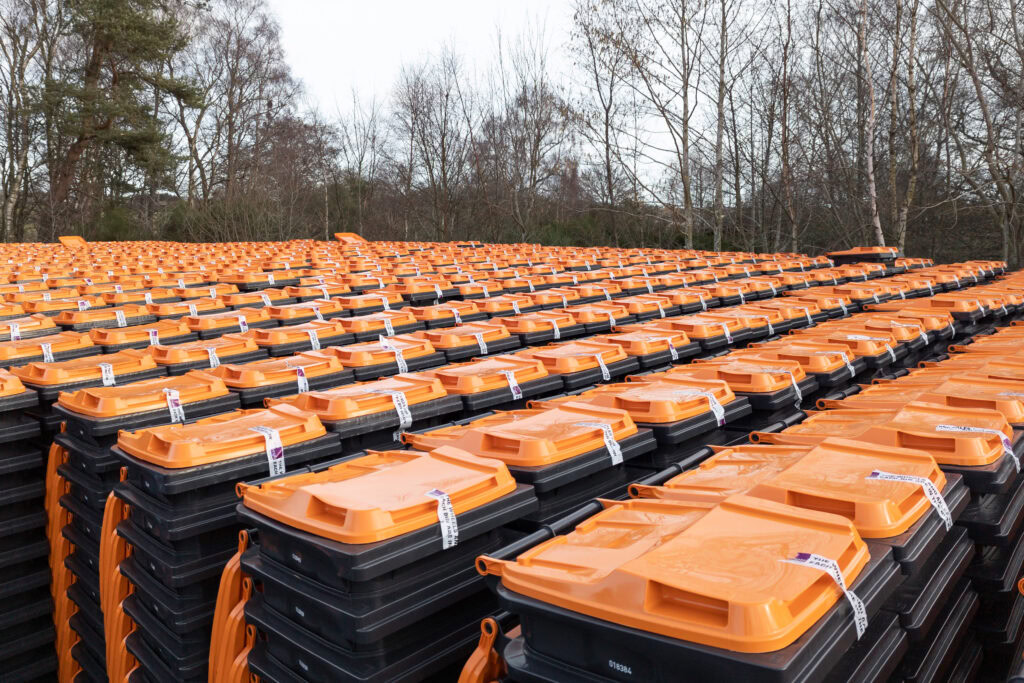NHS England said that it had previously provided a service in the East of England due to “historic arrangements”, but has handed the responsibility back to Essex councils from 1 January 2019.
Other councils in Suffolk, Cambridgeshire and Norfolk – the other areas covered in the agreement – have been granted an extension until April 2019 which means residents can continue to dispose of their waste as normal until then.
Under the historic arrangement with NHS England residents could take waste in pre-subscribed bags to local GP’s and pharmacies and also have clinical waste collected by healthcare providers.

Providing a clinical waste collection is a statutory responsibility for local authorities, although some opt to charge.
NHS England is responsible for funding the collection and disposal of clinical waste from GP surgeries and unwanted medicines from pharmacies. However, it says it does not commission GPs or community patient-generated as collection points for the return of patient-generated sharps waste, and has passed this back to local authorities.
An NHS spokesperson said: “Local councils are responsible for collecting clinical waste from people’s homes.
“NHS England provided this service in some parts of the East of England, due to historic arrangements. Where this was the case, NHS England worked closely with councils to ensure they had put local clinical waste collection services in place.
“Information about these services, including what any changes mean for local people and the relevant contact details for their local council, will be sent out across the region.”
Councils across the East of England have been impacted. This includes Cambridgeshire and Peterborough, Essex, Norfolk and Waveney as well as Suffolk.
UPDATED 15:00, February 5 to add that Suffolk, Cambridgeshire and Norfolk have agreed an extension.
Southend
In Southend, the council said it can’t remove the charge it has always had in place for clinical waste collections.

Cllr Mark Flewitt, cabinet member for public protection at Southend Council, said: “The council has provided a sharps disposal service for a number of years now at a cost.
“However, up until 1 January 2019, the NHS provided this service free of charge.
“Since the NHS has decided to no longer provide this service, residents are now being directed to our clinical waste service.
“We appreciate the collection fee is an unwanted cost, however it reflects the bespoke nature of the service – providing a door-to-door collection of a hazardous material in a tailored way.”
Colchester
Last month, Colchester council announced that it will now be absorbing the costs and providing a free service to residents who self-medicate.
Colchester said that while it has had a statutory responsibility to provide a clinical waste collection service for “many years”, the council “always charged for this due to the specialist steps that need to be taken for collecting and disposing of the waste”. It added it will receive no additional money.
Councillor Martin Goss, portfolio holder for waste, environment and transportation, said: “There are some legal steps we must take before completely removing the charges, but we are seeking to do this as quickly as possible.”
He added: “Once again it is another example of council’s being expected to pick up these additional responsibilities without any extra funding. However, following NHS England’s decision to end their free service, I feel we have a moral duty to step in and offer this without charge to prevent people suffering any additional worry and stress.”









Subscribe for free